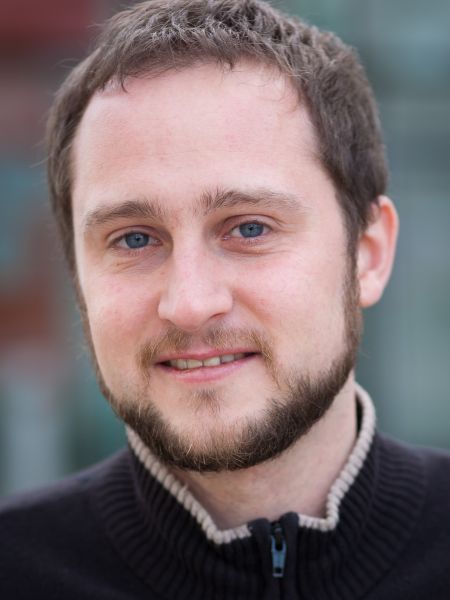Philip Greulich

Dr Philip Greulich
Postdoc in Prof Simons' group
Office: 537 Mott Bld
Phone: +44(0)1223 3 37359
Email: pg409 @ cam.ac.uk
Personal web site
TCM Group, Cavendish Laboratory
19 JJ Thomson Avenue,
Cambridge, CB3 0HE UK.
Research
I like to think in a multidisciplinary way, and in my work I apply theoretical methods from statistical physics to biology. Here I follow two directions: on the one hand understanding physical phenomena in biological systems (like phase transitions and critical phenomena) and on the other hand I use the modelling to infer underlying biological mechanisms (e.g. differentiation pathways, cell fate rules). For latter approach, I work together with leading biologists that perform experiments which yield high quality statistical data. Adjusting and fitting models to this data gives unexpected insights to the underlying biological phenomena.
My research interests in particular are:
- Protein synthesis; traffic of ribosomes
- Antibiotic pharmacodynamics
- Bacterial population dynamics
- Tissue cell population dynamics
In Plain English
I am a theoretical physicists but am mainly interested to understand how biological systems work quantitatively. In particular I want to understand how cells in our body reproduce and specialize to perform the tasks needed for our organs to work. This is about numbers: the numbers of produced cells and how many cells devote for which task is essential for a working organ, otherswise tissue can over-grow and form tumours. This can only be understood by mathematical approaches, therefore I use mathematical methods usually used in theoretical physics to understand how cell dynamics in tissues work. I am creating new models for systems of reproducing cells and when we compare the models with experiments we can find out what is really going on there.
Featured Publications
- The cellular basis of oesophageal tumour growth Under review at Nature Cell Biology
- Growth-dependent bacterial susceptibility to ribosome-targeting antibiotics Mol. Syst. Biol. 11 796 (2015)
- Differentiation imbalance in single oesophageal progenitor cells causes clonal immortalization and field change. Nat. Cell Biol. 16 615 (2014)
- Mutational Pathway Determines Whether Drug Gradients Accelerate Evolution of Drug-Resistant Cells. Phys. Rev. Lett. 109 088101 (2012)
- Mixed population of competing totally asymmetric simple exclusion processes with a shared reservoir of particles. Phys. Rev. E 85 011142 (2012)
- Boundary-induced orientation of dynamic filament networks and vesicle agglomerations. Phys. Rev. E 84 060902(R) (2011)
- Single-bottleneck approximation for driven lattice gases with disorder and open boundary conditions Journal of Statistical Mechanics: Theory and Experiment 04009.1 (2008)